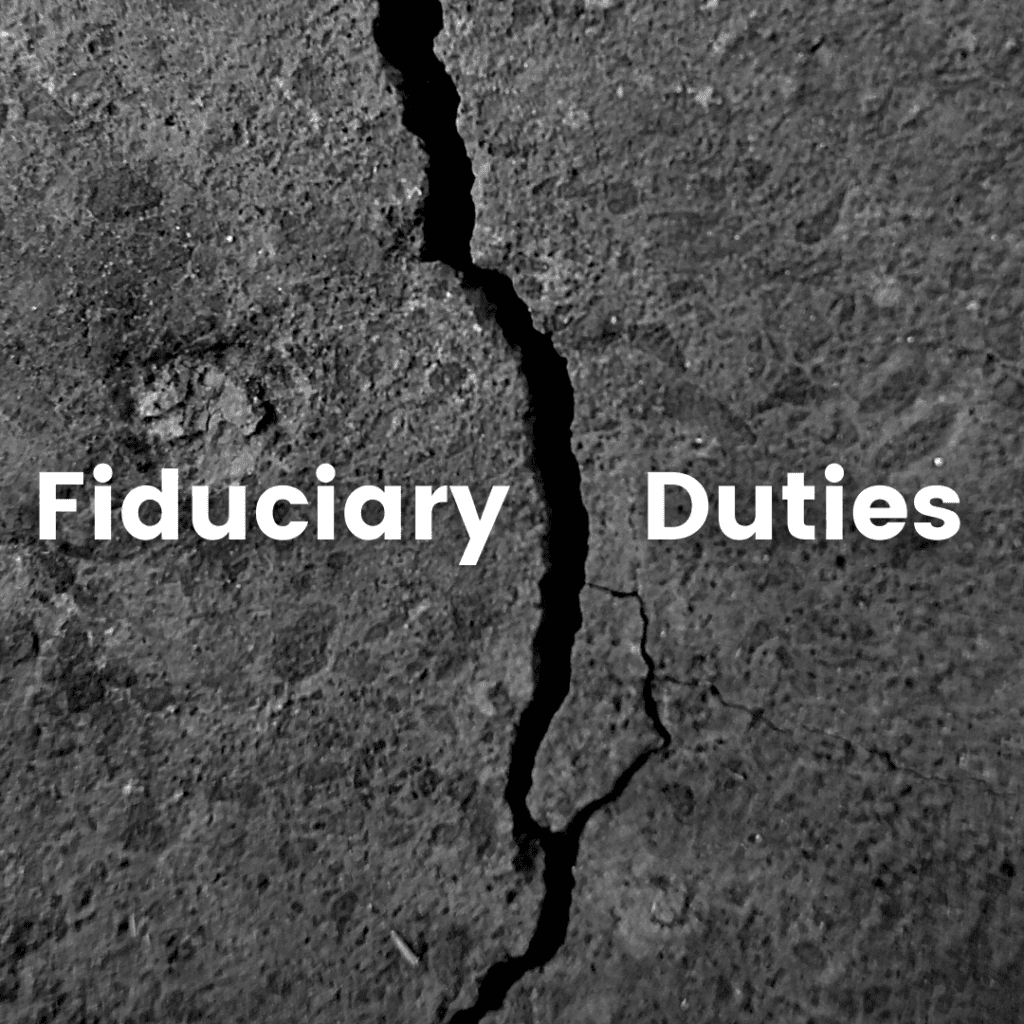Common causes of hostile business disputes include breach of fiduciary duty, partnership disputes, and illegal or fraudulent activities. Scroll down to learn more about what fiduciary duties business partners owe, the various consequences of a breach of those duties, and other common causes for business disputes.

What Constitutes a Breach of Fiduciary Duty?
In every type of business, every individual running the business owes fiduciary duties to the business and to each other. Broadly speaking, those fiduciary duties include a duty of loyalty, duty of care and a duty of good faith and fair dealing. In sum, these duties ensure that every individual running the company performs their duties in the best interest of the company and is honest in their transactions. Consequently, actions that undermine those principles constitute a breach of fiduciary duty. Some of the most common examples of a breach of fiduciary duties that occur when businesses are in the process of dissolution include improperly using business funds, sharing trade secrets, acting on behalf of a competitor, or concealing information from other partners.
Can You Sue for Breach of Fiduciary Duty?
If you have been wrongly affected by another partner’s breach of fiduciary duties, you may be able to sue the offending party for their actions. To have a successful breach of fiduciary duty claim, an injured party needs to be able to demonstrate two elements:
- That a breach of fiduciary duties actually occurred
- That they sustained damages due to the breach.
A company that does a good job keeping records and encourages communication will have an easier time demonstrating when back acts occur, tracking down the source of those acts, and the consequences that flow from them.
What are the Breach of Fiduciary Duty Statute of Limitations?
The statute of limitations for bringing a lawsuit alleging a breach of fiduciary duty varies from state to state. In Pennsylvania, the statute of limitations for a breach of fiduciary duties is two years.
What is the Fiduciary Duty of the Board of Directors?
Every corporation has a board of directors, and every member of the board owes fiduciary duties to each other and to the company as well. When it comes to dissolution of a company, some of the common breaches of fiduciary duties that arise include denying shareholders access to records, preventing shareholders from being able to participate in voting, or concealing or falsifying financial records and self dealings.

What Happens When Business Partners Disagree?
Unfortunately, business partners do not always see eye-to-eye. The good news is that there are ways of resolving those issues. The best place to start when there is a business partner dispute is negotiation, or increased communication between the partners. They may also seek a mediator to help facilitate the conversation and make sure that both sides of the story are heard. The partners may also want to consult their business agreement or bylaws to help resolve a dispute. If these options are still unsuccessful, a partner may file actions with the court and seek resolution through a court order.
What Happens If a Partner Wants to Leave the Partnership?
If a partner wants to leave the partnership, then the partners will need to look into dissolving the partnership. That process can vary from business to business and depends on the various goals of the partners. Refer to your partnership agreement to determine whether there are any terms that govern the dissolution of the partnership. It is also advisable to get an attorney involved to help make sure that all financial and legal obligations are satisfied.

Is Breach of Fiduciary Duty a Crime?
Breach of fiduciary duties can sometimes constitute as crimes if the underlying action violates a criminal statute. For example, a partner who sells insider information about the company, or commits insider trading, breaches a fiduciary duty to the company, but also commits a crime under the Securities Exchange Act. Similarly, falsifying a corporation’s financial reports not only breaches a fiduciary duty, but also performs a criminal act in violation of the Sarbanes-Oxley Act. Other actions that can constitute a breach of fiduciary duties and be considered criminal acts are embezzlement and misleading clients to make poor investments.
A business dispute or corporate conflict can be complicated and overwhelming, but it doesn’t have to be with the help of an experienced business lawyer. Contact us at MBM Law today to learn more about how we can help you and your business.
